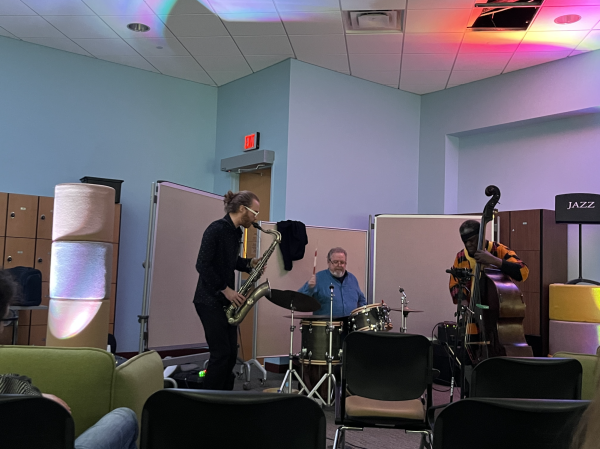Resettlement in Utica, NY: Reflections and Recommitments

On Thursday, March 4, a group of Colgate students, faculty and community members gathered for the third SOCI Brown Bag Seminar of the Spring Semester, entitled “Refugee Resettlement in Utica, NY: Reflections and Recommitments.” The discussion featured a distinguished panel: Ellen Percy Kraly, Professor of Geography and Environmental Studies and executive board member of the Upstate Institute; Shelly Callahan, Executive Director of The Center Immigration Center in Utica, NY; Julie Dudrick, Project Director of Upstate Institute; and Lynn Schwarzer, Professor of Art & Art History and Film & Media Studies and Director of the Upstate Institute.
As a precursor to the discussion of immigration in Utica, Professor Kraly provided background information on the current state of immigration on a global scale and the accompanying trends. Notably, the UN Refugee Agency (UNHCR) has reported that at minimum, 1% of the world’s population is displaced. At the end of 2019, 79.5 million people were displaced, which includes domestic displacement. By the end of 2020, displaced persons increased to 80 million. Kraly reflected on the historic changes in legality involving immigration, as well as how the history of racism, xenophobia and antisemitism impacted U.S. immigration policies. In the past century, a variety of legislation has been passed which affected the immigration process in many different ways.
Calahan, the executive director of the Center, elaborated on immigration trends particular to Utica, New York, where the Center is located. The Center opened in 1981, and in their first year the majority of immigrants it assisted were Vietnamese, Cambodian and Laotian. In the 1990’s, as the Bosnian War devastated Bosnia and Herzegovina, the majority of immigrants who came through the Center were of Bosnian heritage. In the 2000s, the Karen people and other populations from Burma, Iraq, Nepal, Somalia and Sudan were well represented in the Center’s client base. Most recently, in the 2010s, more than 4000 immigrants have come from the State of Burma seeking refuge.
In total, over 16500 refugees have come through the Center, and Utica was labeled in 2006 as “the town that loves refugees” by the UNHCR.
“We are a standalone center. Our whole agency wraps around refugee resettlement; that is the heart of our agency,” Calahan remarked.
The Center is a one-stop-shop, providing services to immigrants ranging from pro-bono attorneys for citizenship acquisition, community education services, employment assistance and a cultural competency program. The Center is involved in every aspect of adjustment to life in Utica.
Calahan noted that, unfortunately, the Trump Administration’s strict immigration policy in conjunction with the Covid-19 pandemic has halted immigration to a stand-still, with many sections of the immigration pipeline domestically, nationally and internationally nearing collapse. This has created a dramatic reduction in the entrance of refugees into the Center, and the nation as a whole. Calahan noted a shift in operations to address the public health crisis as new developments emerge. Calahan also upheld the importance of community involvement as a cornerstone of the mission of the Center.
Professor Lynn Schwarzer, the Director of the Upstate Center at Colgate University, remarked that celebrating the individuals in the wider community is central to Colgate’s vision as we commemorate our third century.
“Through our community partners and research we have discovered interactions that reinforce and connect the dots between the past and the future,” Schwarzer commented.
The Upstate Institute encourages exchanges between Colgate University and the local community to join students, faculty, staff and residents through academic collaboration that supports Upstate New York as a whole. Additionally, research initiatives aligned with impactful organizations like the Center allow for further support. As Schwarzer explained, the collaboration between the Center and the Upstate Institute is designed to continue this tradition of social progress in Upstate New York.
Julie Dudrick, the Project Director of the Upstate Institute, suggested some ways in which Colgate students and faculty could get involved in the Center’s operations. For students, paid full-time 10-week summer fellowships are available in the fields of public health research and social media marketing for the Welcome Center at the Center. For faculty, funding is available for research that will benefit the community and grants for community-based course development.
Because of the lasting effects of the Trump Administration’s policies and Covid-19 Pandemic, the work being done through the Center and the Upstate Institute to promote inclusion and well-being to refugees and migrants is more important now than ever.
Dudrick commented, “There is always an opportunity for direct involvement and direct service.”










